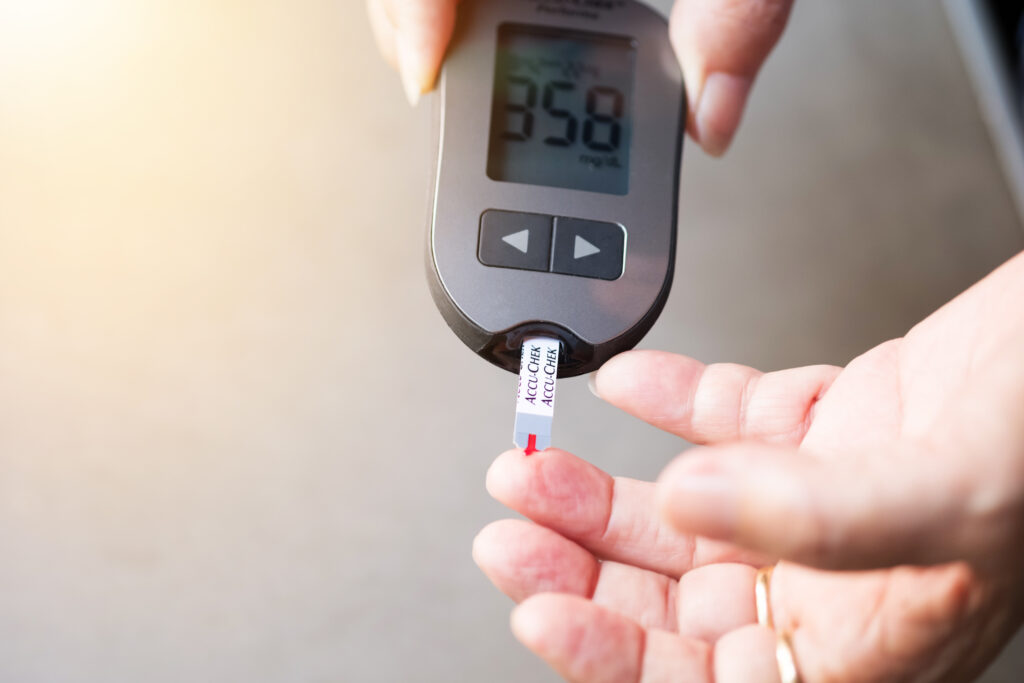
People with diabetes must test their blood sugar levels often to stay within a target range. When their levels get high, it's called hyperglycemia.
Symptoms of high blood sugar include classic signs like frequent urination, excessive thirst, and unexplained weight loss. But some of the symptoms are less obvious, especially in children.
1. Frequent urination
Frequent urination is a common sign of diabetes because the body releases excess glucose through urine. The excess glucose can lead to dangerously high levels of blood sugar and dehydration, which is why it's important to treat frequent urination as soon as you notice it.
Frequent urination can also be caused by drinking too many fluids or certain foods and beverages, especially those that are acidic, caffeinated, or contain alcohol. In pregnant women, the frequent urination is often due to the enlarging uterus pressing on the bladder. However, if your frequent urination is accompanied by other symptoms of high blood sugar, make an appointment with a physician right away. They can diagnose the underlying problem and recommend treatments to reduce your urinary symptoms.
2. Excessive thirst
A healthy diet and proper exercise help to keep blood sugar levels within a normal range. But sometimes, even with the best of care, levels can get too high.
Excessive thirst, or polydipsia, can be a sign of high blood sugar. The excess glucose that enters the kidneys and is excreted in urine can make someone feel very thirsty, regardless of how much fluid they drink.
If you're experiencing excessive thirst, talk to your doctor to check your blood sugar. They may recommend diabetes medication or dietary changes. They may also refer you to a dietitian.
3. Weight loss
Unexpected weight loss is often the first sign of high blood sugar. When blood sugar levels rise, the body is unable to reabsorb the glucose and it spills into the urine, leading to excessive thirst and dehydration. Excessive urination also causes the body to break down muscle for energy, which leads to unexplained weight loss.
If left untreated, high blood sugar can lead to diabetic ketoacidosis, a severe medical emergency that requires immediate treatment with insulin and a shot of glucagon. This condition can cause brain damage, coma and death, according to the ADA.
People with diabetes can prevent hypoglycemia by following a healthy diet and taking their insulin or other medications as prescribed. They can also ask friends, family members and caretakers to learn the signs of low blood sugar so they can help if needed.
4. Diarrhea
Sugar stimulates the gut to release fluid and electrolytes that loosen stools. You may also experience abdominal pain or bloating with diarrhea. Diarrhea should not last longer than 1 or 2 days and you should call your healthcare provider if it does. Also call if you have a fever, blood in the stool or weight loss. Some medicines (both prescription and nonprescription), herbs and dietary supplements can cause diarrhea as a side effect.
Extremely high blood sugar levels can lead to a medical emergency called diabetic ketoacidosis (DKA). The body cannot use the glucose in the blood for energy, so it starts breaking down fat to get the energy it needs. This creates chemicals called ketones, which raise the acidity of the blood. This can be life-threatening.
5. Blurred vision
Blurry vision is a common condition that often stems from eyestrain or age-related issues such as nearsightedness, farsightedness and astigmatism. However, when blurry vision is sudden and accompanied by other symptoms such as swirling veils covering the eyes or flashes in one eye, it's usually a sign of a more serious health problem that needs immediate medical attention.
The underlying cause of blurred vision is usually a symptom of high blood sugar. It can also result from a number of other health problems, including strokes, preeclampsia (a dangerous condition that occurs late in pregnancy) and wet age-related macular degeneration.
Symptoms of high blood sugar can range from mild to severe, and they can get worse the longer a person's blood glucose level is above the threshold for normal. Whether or not you notice symptoms can be affected by your typical health conditions and blood sugar levels, so if you experience blurred vision, consult with a doctor right away.





